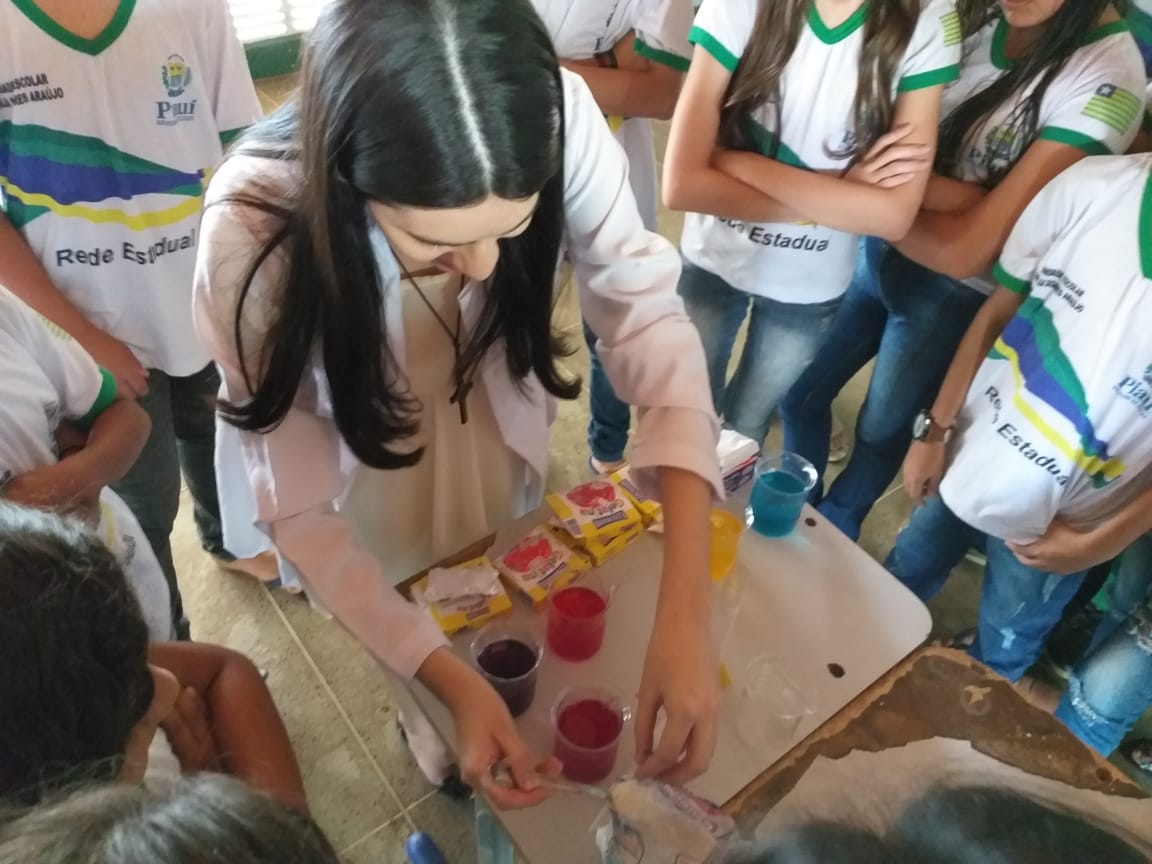Chemistry Girls: contributions from a training course for the Brazilian Junior Chemistry Olympics (OBQJr)
Main Article Content
Abstract
Scientific dissemination actions are relevant, especially when they promote female participation and engagement. We aim to report the teaching experience of students of the undergraduate course in Chemistry at the Federal Institute of Education, Science and Technology of Piauí (IFPI) Cocal campus in a Training Course for the Junior Chemistry Olympiad, with students from public schools in Cocal-PI. The approaches used involved lectures, dialogues and practical activities. From the activities, the students integrated in a way that the dialogue and exchange of ideas was intensified. For the undergraduate students, the experience also allowed them to increase their pedagogical training. We conclude that the activities developed contributed, to a large extent, to the learning of Chemistry of public school students.
Article Details

This work is licensed under a Creative Commons Attribution-NonCommercial-ShareAlike 4.0 International License.
Aquellos autores/as que tengan publicaciones con esta revista, aceptan los términos siguientes:- Los autores/as conservarán sus derechos de autor y garantizarán a la revista el derecho de primera publicación de su obra, el cuál estará simultáneamente sujeto a la Licencia de reconocimiento de Creative Commons que no se permite un uso comercial de la obra original ni de las posibles obras derivadas, la distribución de las cuales se debe hacer con una licencia igual a la que regula la obra original.
- Los autores/as podrán adoptar otros acuerdos de licencia no exclusiva de distribución de la versión de la obra publicada (p. ej.: depositarla en un archivo telemático institucional o publicarla en un volumen monográfico) siempre que se indique la publicación inicial en esta revista.
- Se recomienda a los autores/as difundir su obra a través de Internet (p. ej.: en archivos telemáticos institucionales o en su página web) después del proceso de publicación, lo cual puede producir intercambios interesantes y aumentar las citas de la obra publicada. (Véase El efecto del acceso abierto).
How to Cite
References
Abraão, R. K., Santos, S. C. (2018). Educação de jovens e adultos: alguns estudos sobre o lúdico no ensino da matemática. Revista UNIABÉU, 11(27), 36-60.
Carvalho, C. V. M., Soares, J. M. C., Caetano, R. R. G., Silva, L. A. S. (2019). Ludicidade como mediação pedagógica: desenvolvimento de um projeto voltado ao ensino de química. REnCiMa, 10(5), 191-205.
Freire, P. (2015). Pedagogia do oprimido. Rio de Janeiro: Paz e Terra.
Freire, P. (1999). Pedagogia da Autonomia: saberes necessários à prática educativa. Rio de Janeiro: Paz e Terra.
Gaspar, A., Monteiro I. C. C. (2005). Atividades experimentais de demonstrações em sala de aula: Uma análise segundo o referencial da teoria de Vygotsky. Investigações em Ensino de Ciências, 10(2), 227-254.
Moreira, M. A., Masini, E. F. S. (1982). Aprendizagem Significativa: a Teoria de David Ausebel. São Paulo: Moraes.
Niezer, T. M., Silveira, R. M. C. F., Sauer, E. (2016). Ensino de soluções químicas por meio do enfoque ciência-tecnologia-sociedade. Revista Electrónica de Enseñanza de las Ciencias, 15(3), 428-449.
Passos, C. M. B. (2014). Dimensão ética e afetiva da docência: contribuições da didática. Fortaleza: Eduece.
Penin, S. T. S. (2009). Profissão Docente. São Paulo: MEC.
Peruzzi, S. L., Fofonka, L. (2014). A importância da aula prática para a construção significativa do conhecimento: a visão dos professores das ciências da natureza. Educação Ambiental em Ação, 47.
Piletti, C. (2004). Didática Geral. São Paulo: Editora Ática.
Rosa, M. A. G.; Quirino, R. G. (2016). Relações de gênero na ciência e tecnologia (C&T): estudo de caso de um centro de federal de educação tecnológica. Rev. Diversidade e Educação, 3(8), 42-55.

